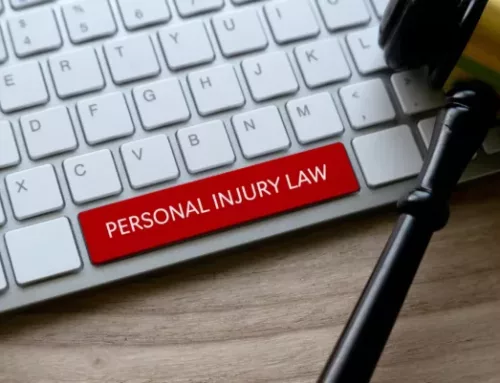Don’t Get Lost and Obtain the Legal Help You Need For Dealing With Insurance Companies
In insurance claims, Wheeling, West Virginia residents often face unexpected obstacles. Common insurance blunders in Wheeling, West Virginia must be avoided to protect your interests and negotiate the challenges.
This ain’t just about saving yourself a headache. Protecting your money and getting support when life throws you are our topics. Let’s point out the potholes to avoid before filing a claim.
Short Summary
- Insurance: Your financial safety net for life’s twists and turns.
- Protects you from health costs, property damage, and more.
- Common types: Health, life, auto, homeowners, business, and more.
- Wheeling pitfalls: Lack of documentation, delayed claims, unfair settlements.
- Navigate like a pro: Document everything, report promptly, avoid hasty decisions.
There are many factors to consider, making it like a puzzle. Avoiding frequent insurance mistakes is crucial. It’s like a map to help you navigate insurance firms. You can ensure fairness and smooth resolution this way.
What is the Purpose of Insurance?
Insurance protects against unexpected losses and financial risks. Insurance allows individuals, businesses, and other entities to transfer risk-related financial burdens to insurance companies in exchange for payments. The main insurance objectives are:
- Risk Management: Insurance helps individuals and entities manage and mitigate the financial impact of unexpected events, such as accidents, illnesses, natural disasters, or property damage.
- Financial Protection: Insurance plans provide financial protection and compensation for insured losses or damages. This safety net helps policyholders recover from financial disasters.
- Peace of Mind: Insurance coverage offers peace of mind, lowering financial loss worry for individuals and organizations.
- Promoting Economic Stability: To promote economic stability, insurance spreads the financial burden of losses across a large pool of policyholders. This prevents unexpected business or personal bankruptcies.
- Supporting Long-Term Goals: Life insurance supports long-term goals by providing financial support for beneficiaries after the policyholder’s death. It can aid with funeral costs, income replacement, and long-term financial security.
What are the Most Common Types of Insurance?
While there’s a vast array of insurance options, some types stand out as particularly common and essential for most individuals:
- Personal Insurance:
- Health Insurance: Covers medical expenses from illness, injury, and surgeries. Crucial for accessing healthcare without incurring crippling costs.
- Life Insurance: Provides financial security for loved ones in case of your death. Different types like term life, whole life, and universal life cater to diverse needs.
- Auto Insurance: Mandatory in most places, it covers financial responsibility for car accidents, injuries, and damages. Different coverage levels cater to your risk tolerance and budget.
- Homeowners Insurance: Protects your home and its contents against damage from fire, theft, weather events, and more. Often bundled with property and liability coverage.
- Renters Insurance: Similar to homeowners insurance, but protects your belongings and provides liability coverage for renters. Essential for peace of mind even if you don’t own the property.
- Business Insurance:
- Professional Liability Insurance: Protects businesses from lawsuits alleging negligence or errors in their services. Crucial for professionals like doctors, lawyers, and consultants.
- Property Insurance: Similar to homeowners insurance, but safeguards business property and equipment against damage or loss.
- Workers’ Compensation Insurance: Mandatory in most states, it provides benefits to employees injured on the job.
- Other Common Types:
- Travel Insurance: Provides financial protection for trip cancellations, medical emergencies, and lost luggage while traveling.
- Pet Insurance: Covers veterinary care costs for your furry companions.
- Disability Insurance: Provides income if you become unable to work due to illness or injury.
Remember, the specific types of insurance you need depend on your individual circumstances and risk profile. It’s important to assess your needs and consult with an insurance professional to tailor your coverage accordingly.
What are the Common Mistakes to Avoid When Dealing with Insurance Companies in Wheeling, WV?
Avoid these common insurance mistakes in Wheelings, WV to save money and get the coverage you need.
#1: Inadequate Documentation
Documentation is essential to any claim, as it can make or break it. Documentation goes beyond snapping photos; it eliminates ambiguity.
Types of Required Documents:
- Photographs of Damage: Timestamped and geotagged if feasible.
- Bills and Invoices: To support financial claims.
- Police Reports: Particularly crucial in incidents like auto accidents or theft.
- Witness Statements: These can sway the outcome in your favor.
- Medical Reports: Essential in cases of bodily injury.
Consequences of Inaccurate Documentation:
Insufficient documentation can hurt your present claim and future claims. Deficient or poorly managed claim records may damage your credibility, making insurance providers skeptical of future claims.
#2: Delaying the Claim Process
Late insurance claims might cause issues with the insurance company and miss the best time to gather evidence. Your insurance policy usually specifies time limits.
Risks of Delay:
- Potential Deterioration of Evidence: Weather conditions may alter the accident scene, and delayed documentation may cause problems.
- Diminished Witness Recall: Obtaining statements promptly ensures the incident remains fresh in people’s minds.
- Risk of Claim Denial Due to Missed Deadlines: Time is crucial, especially when facing impending deadlines.
#3: Prematurely Admitting Fault
Admitting fault prematurely can lead to complex legal entanglements. Insurance companies might reduce your claim amount, or you could find yourself unexpectedly embroiled in a legal dispute.
Effects on the Claim:
Insurance adjusters are adept investigators, and any premature admission can result in significant financial losses during claim settlement. Always await an official investigation before making any admissions.
#4: Accepting the Initial Offer
Insurance companies, aiming to minimize costs, often present an initial offer designed to be enticing but not necessarily reflective of what you deserve.
Negotiation Tips:
- Understand Your Policy’s Terms: Be aware of your entitlements.
- Consult Independent Appraisers: They offer an unbiased valuation.
- Leverage Your Documentation: Strong evidence enhances your negotiating position.
#5: Lack of Policy Understanding
Your insurance policy is more than a stack of papers; it represents a binding contract between you and your insurer. Thorough comprehension of this document can be your most potent asset when filing a claim.
Commonly Misunderstood Terms:
- Deductible: The amount paid before insurance coverage begins.
- Premium: The cost of your insurance policy.
- Exclusions: Items not covered by your insurance.
#6: Setting Your Deductible Too High or Too Low
Establishing a deductible that is either excessively high or too low can impact your insurance policy costs. A higher deductible lowers policy costs. Consider your financial ability to pay property damage when choosing a deductible. Remember that small claims may affect insurance costs.
#7: Not Having Enough Home or Auto Insurance
Insufficient home or auto insurance might increase out-of-pocket costs under damage. Lacking proper coverage means paying more for home or car repairs.
Also consider replacing your home’s valuables, such as jewelry. If your existing coverage is insufficient, you can buy more to protect your belongings.
#8: Knowing When to Drop Your Car’s Comprehensive or Gap Coverage
Knowing when to drop car comprehensive or gap coverage is critical. For older, paid-off cars, you may choose to reduce collision and comprehensive coverage. Comprehensive insurance covers theft and non-accidental damage. Ask your agent if keeping these coverages is in your best interest.
If you owe less than your car’s worth, gap insurance may not be needed. It’s important to evaluate your position and talk to your agent before keeping or dropping these coverages.
#9: Not Knowing About Health Care Networks and Referrals
Health care networks and referrals can be overlooked, causing problems. Many health plans use doctor-hospital networks. Unless in emergencies, your plan may require you to see just specific healthcare providers and may not cover services elsewhere. Some plans allow visits to other doctors, but at additional expense.
Understand whether your plan requires a referral from your main doctor to a professional or pre-approval for certain treatments. Referrals and approvals are vital to avoid high medical expenditures and ensure healthcare coverage.
#10: Not Telling Your Family About Your Life Insurance
Failure to educate your family about life insurance is possible. Share your life insurance coverage with your family and give them a copy.
They’ll need the insurance company’s name and policy number to file a claim after your death. Sharing this information streamlines life insurance matters during a difficult time.
How to Avoid Committing Mistakes When Dealing with Insurance Companies in Wheelings, WV?
To steer clear of common mistakes when dealing with insurance companies in Wheeling, WV, consider the following tips:
- Thorough Documentation:
-
-
- Properly document all details related to your claim. This includes timestamped and geotagged photos of damage, bills, invoices, police reports (especially in accidents or thefts), witness statements, and medical reports in case of injuries.
-
- Timely Reporting:
-
-
- Report incidents promptly to avoid complications. Delays can lead to issues such as evidence deterioration, fading witness recollection, and potential denial of claims due to missed deadlines.
-
- Careful Admissions:
-
-
- Refrain from admitting fault prematurely. Allow for an official investigation before making any statements. Premature admissions can complicate your claim and may lead to reduced compensation.
-
- Negotiation Awareness:
-
-
- Avoid accepting the first settlement offer from the insurance company. Understand the terms of your policy, consult independent appraisers for unbiased valuation, and use well-documented evidence as leverage during negotiations.
-
- Policy Understanding:
-
-
- Familiarize yourself with the terms of your insurance policy. Understand concepts like deductibles, premiums, and exclusions. This knowledge is vital when filing a claim and ensures you are aware of your rights and coverage.
-
- Avoiding Underinsurance:
-
-
- Ensure that your coverage adequately protects your property, whether it’s home or auto insurance. Underinsurance can result in higher out-of-pocket expenses in the event of damage or loss.
-
- Knowing When to Adjust Coverage:
-
-
- Assess your insurance needs regularly. For instance, consider adjusting coverage for an older, paid-off vehicle by potentially dropping certain coverages. Consult with your agent to make informed decisions.
-
- Understanding Health Care Networks:
-
-
- Be aware of the healthcare networks and referral requirements in your health insurance plan. Failure to follow network guidelines or obtain necessary referrals can lead to uncovered medical expenses.
-
- Communication with Family:
-
-
- Inform your family about your life insurance policy, providing them with necessary details. This ensures a smoother claims process in the unfortunate event of your passing.
-
- Consulting with Professionals:
-
- When in doubt or facing complex insurance situations, seek advice from legal professionals or insurance experts. Their experience can guide you through challenging scenarios and protect your interests.
By being proactive, well-informed, and attentive to details, you can avoid common insurance mistakes in Wheeling, WV and navigate insurance dealings more effectively.
Get Legal Assistance Today!
When dealing with insurance, it’s important to avoid common mistakes in Wheeling, WV like not documenting well, reporting claims late, admitting fault too quickly, accepting the first offer, and not understanding your insurance policy. To make sure you handle these things correctly, it’s a good idea to get help from the legal professionals.
Don’t settle for less than you deserve. Schedule a consultation with Ghaphery Law Offices, PLLC today. Let them help you claim your peace of mind and ensure that any unexpected twists and turns on your journey are met with calm professionalism and unwavering support.
Ghaphery Law Offices, PLLC is a legal team that can help you understand and deal with insurance in Wheeling. We’re offering a free consultation, which means we’ll talk to you for free and help you figure things out. It’s like having a guide to make sure you don’t make any mistakes when dealing with insurance. If you want help, reach out to our Wheelings law firm, and we’ll be happy to assist you.






